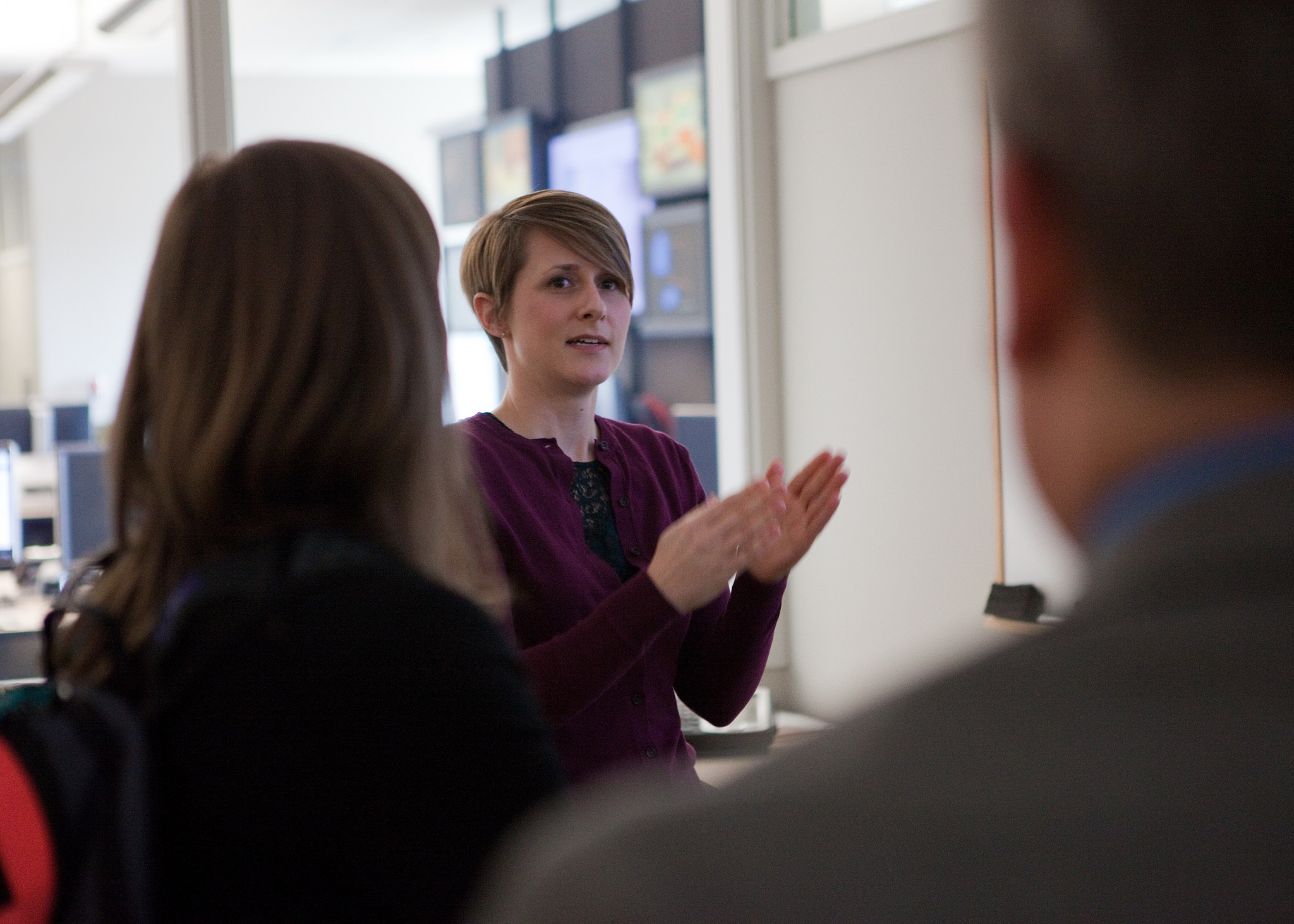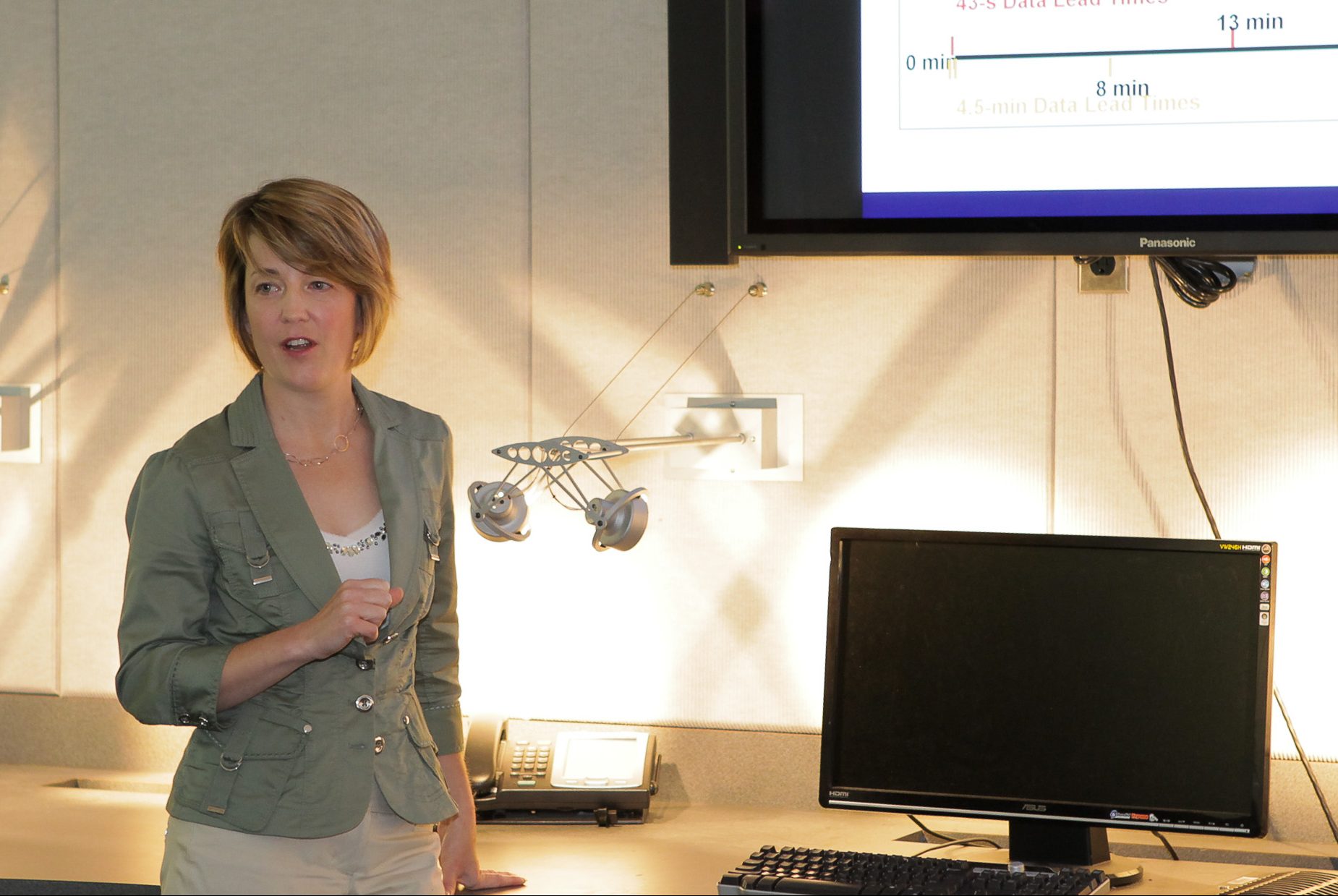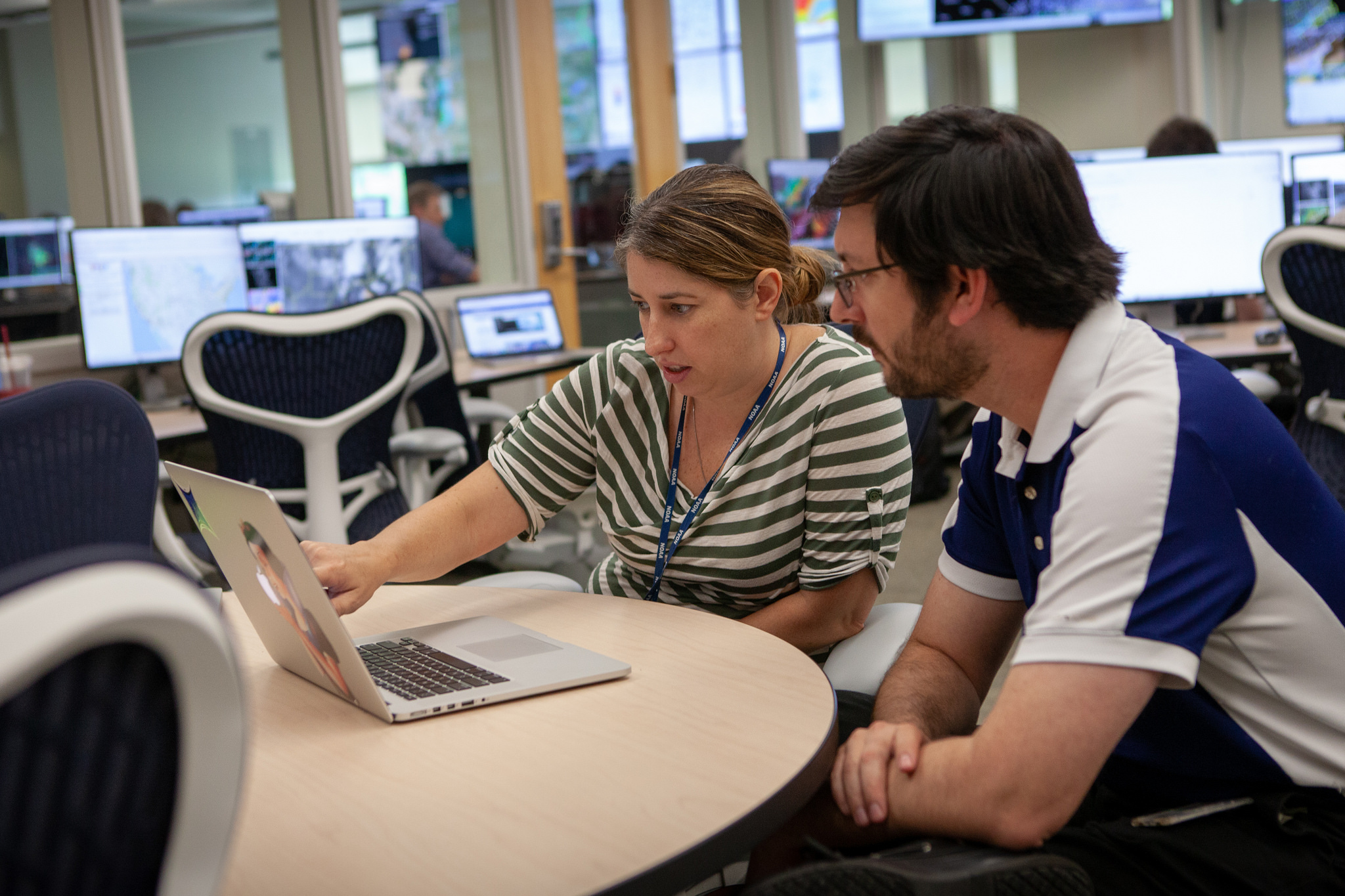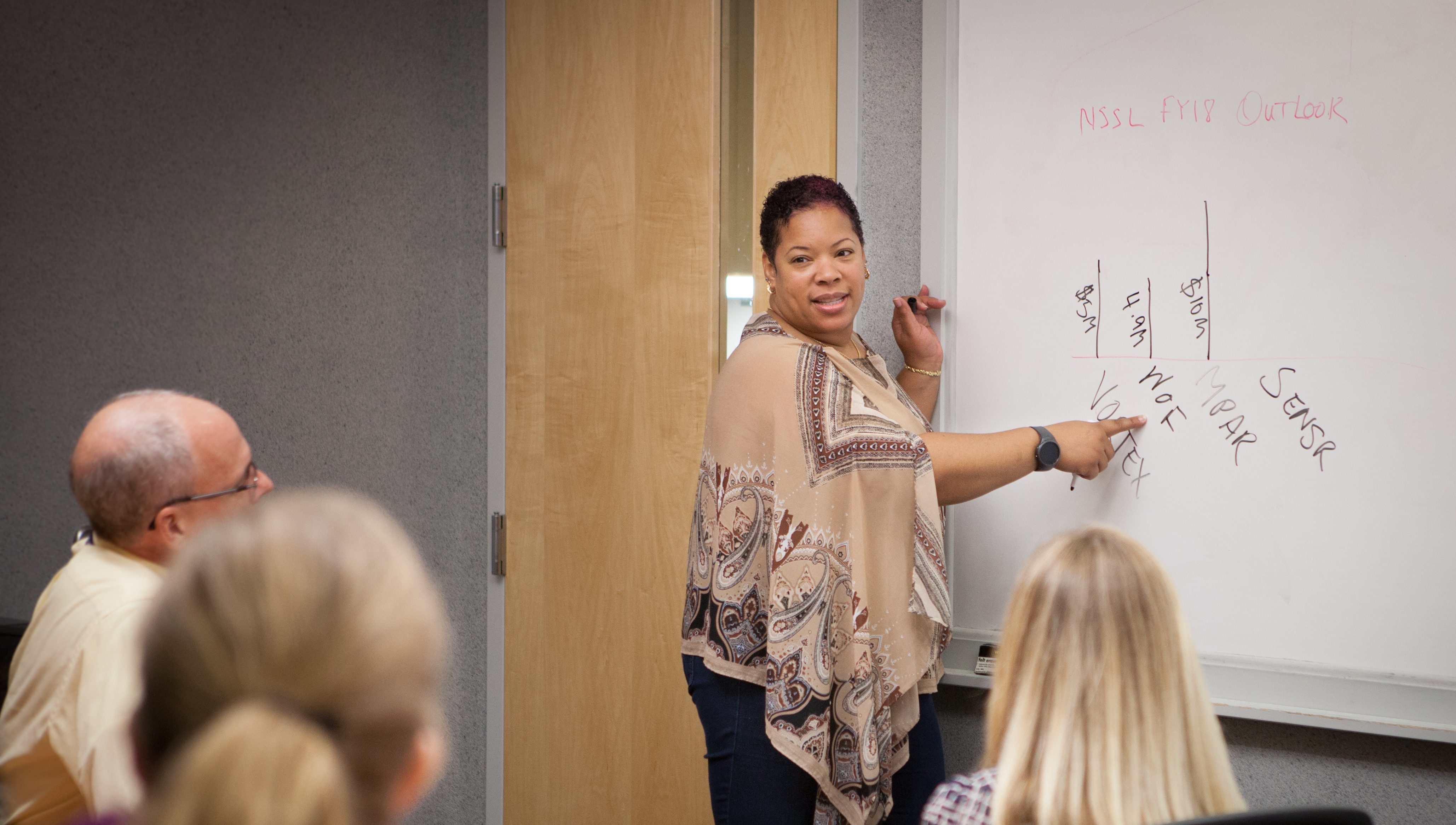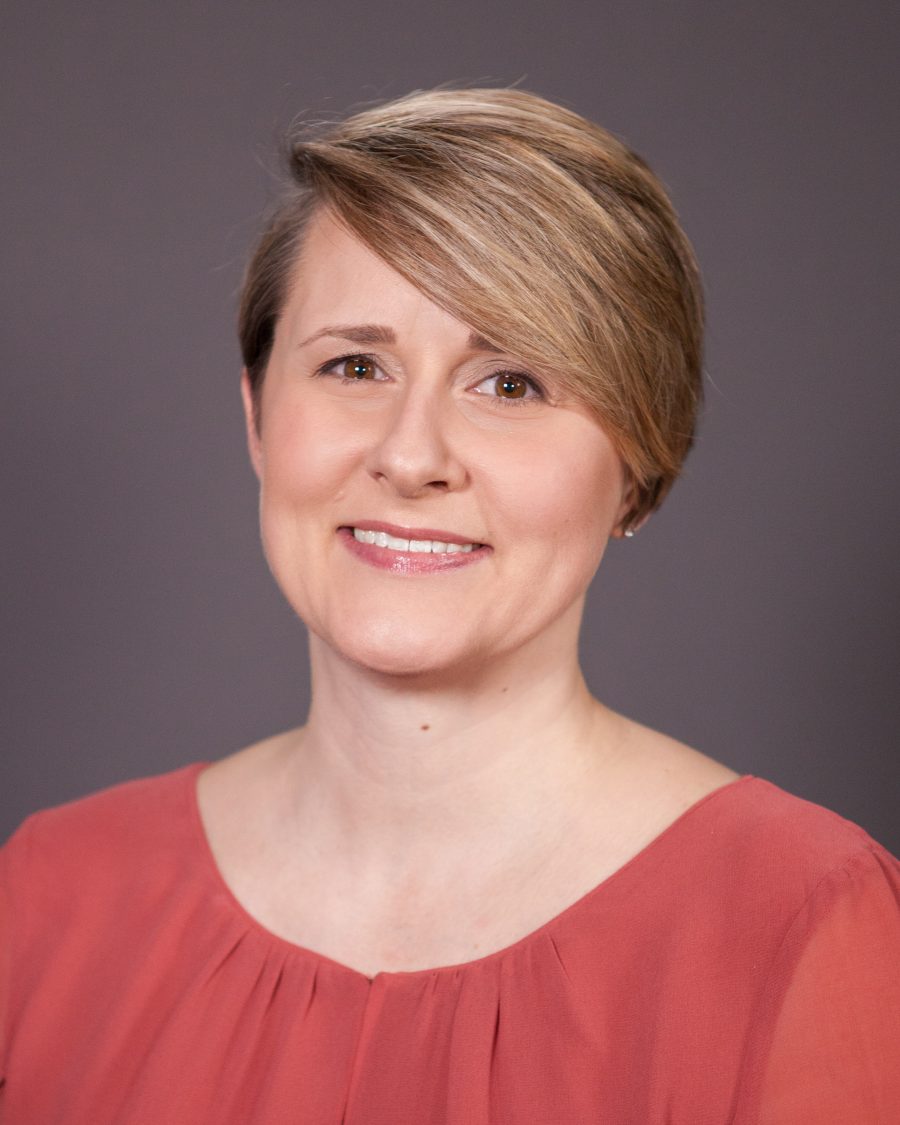
To celebrate Women’s History Month in March NOAA National Severe Storms Laboratory is publishing a series of stories highlighting some women working at the lab. One Q&A segment will be published each Monday in March.
Kodi Berry is a research scientist and Sea Grant liaison for the Cooperative Institute for Mesoscale Meteorological Studies working at NSSL. Berry, who also serves as the executive officer of the NOAA Hazardous Weather Testbed, completed her doctorate from the University of Oklahoma in 2014.
Q: How did you get into your field?
A: Originally I planned on going into physical therapy but quickly realized in college that I am much better at physics than biology and chemistry. I literally sat down with the class bulletin and flipped through all of the majors and their course requirements. When I got to meteorology and saw the physics requirements I thought, “that sounds perfect.”
Q: What is it about your job that interests you?
A: I really enjoy seeing how broadcast meteorologists react to, use, and explain experimental products in a simulated television studio. Each year we do our three-week experiment, I learn more about the broadcasting profession and technology. They’re also a really fun group of people to work with.
Q: Tell us something that might surprise us about you.
A: I was a collegiate co-ed cheerleader at the University of Nebraska for four years as an undergraduate. Go Huskers!
Q: What advice would you provide to up and coming meteorologists or others in your field?
A: Take advantage of a wide variety of internship opportunities. While I never planned to go into broadcasting, I’m thankful for my summer internship at a news station in Topeka, Kansas now that my research focuses on how broadcasters communicate uncertainty to their viewing audience. It’s always valuable to walk in someone else’s shoes.
Q: What is the most memorable experience of your career?
A: The most memorable experience of my career was attending the American Meteorological Society’s Summer Policy Colloquium. The AMS Summer Policy Colloquium brings a select group of graduate students, faculty, and professionals to Washington, D.C. for an intense, ten-day immersion in science policy. It was an amazing ten days that serves as my gold standard for professional workshops and meetings.
Q: What one day sticks out to you during your career? Do you remember one day in particular detail?
A: The day of my dissertation defense sticks out to me most. Once I got past my initial nerves, I seemed to go on autopilot. When it was over, several committee members told me it was a joy to be on my committee and they wished all defenses were like mine.
Q: What is one thing you couldn’t live without at work?
A: Aside from coffee, I couldn’t live without pictures of my family and my daughter’s artwork. They always brighten up a stressful day.
Q: What is the greatest challenge you’ve had to overcome in your life thus far?
A: The greatest challenge I’ve overcome was finishing my Ph.D. with a newborn baby. It was difficult to balance school, work, and family. However, she was my greatest motivation because I want her to know she can do anything she puts her mind to.
Q: Where is your favorite place to be?
A: The beach. There’s just something about the smell of the ocean and sound of waves crashing that instantly relaxes me.
Q: If you could do another job for just one day, what would it be?
A: I would love to try being a veterinarian for a day. I love dogs and many think I missed my calling to be a veterinarian. But, I like physics a lot more than biology and chemistry.
